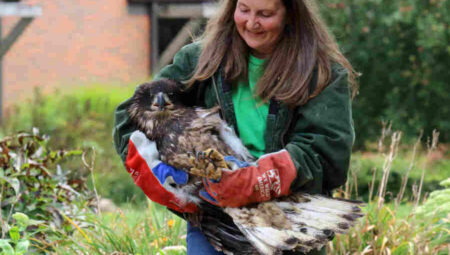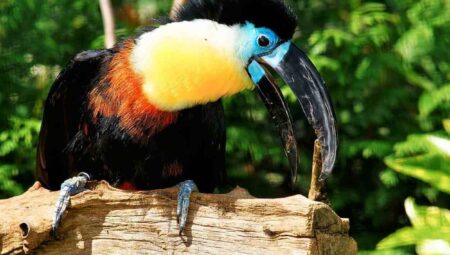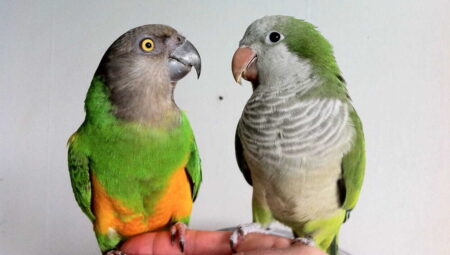It is very important to understand the diversity of diseases that affect our feathered friends. Whether domestic or wild, birds are susceptible to a variety of diseases that can significantly affect their health and well-being. In this comprehensive guide, we will review the most common avian diseases, their causes, symptoms, treatments and preventative measures.
Here are the most common bird diseases
Psittacosis (Parrot Fever):
Psittacosis is a zoonotic infection brought about by the bacterium Chlamydia psittaci. Birds, particularly parrots, cockatiels, and parakeets, are inclined to this disease. People can likewise get this illness through contact with contaminated birds. Side effects incorporate respiratory trouble, nasal release, torpidity, and fever. Anti-microbials like doxycycline or antibiotic medication are frequently endorsed for impacted birds, alongside severe cleanliness practices to forestall human transmission.
Avian Pox:
Avian pox is a viral infection influencing different bird species. It appears as mole like developments on the skin, mucous layers, or inside organs. This sickness can be sent through mosquito chomps or direct contact with contaminated birds. While there’s no particular treatment, strong consideration, great sustenance, and limiting openness to mosquitoes are fundamental for recuperation.
Aspergillosis:
Aspergillosis is a parasitic disease brought about by Aspergillus spp. It influences a bird’s respiratory framework, prompting trouble breathing, wheezing, and in extreme cases, passing. Anticipation includes keeping up with spotless and dry everyday environments for birds. Antifungal meds like itraconazole or voriconazole are utilized for treatment.
Newcastle Disease:
Newcastle sickness is a profoundly infectious viral contamination influencing homegrown and wild birds. It can cause respiratory, apprehensive, and stomach related side effects. Tainted birds might display wheezing, loss of motion, and loose bowels. Avoidance includes immunization in poultry cultivates, and impacted birds require separation and strong consideration.
Polyomavirus:
Polyomavirus basically influences youthful birds, especially psittacine species like parrots. It can cause different side effects like unusual quills, weight reduction, hemorrhages, and demise in serious cases. There’s no particular treatment, so counteraction through inoculation and severe cleanliness rehearses is essential.
Candidiasis (Thrush):
Candidiasis is a parasitic disease brought about by Candida spp. Birds with debilitated invulnerable frameworks, stress, or anti-infection use are more defenseless. Side effects remember white plaques for the mouth, yield, or intestinal system. Antifungal meds like nystatin or fluconazole are utilized for treatment.
Avian Chlamydiosis (Chlamydia psittaci):
Chlamydiosis is a bacterial disease that can influence different bird species and can likewise be communicated to people. Birds might show side effects like eye release, laziness, and respiratory issues. Anti-microbials, for example, doxycycline are recommended, and severe cleanliness measures are important to forestall transmission to people.
Egg Binding:
Egg restricting happens when a female bird can’t pass an egg. It can prompt entanglements like peritonitis or egg yolk coelomitis. Giving a calcium-rich eating routine, legitimate settling materials, and guaranteeing ideal ecological circumstances can assist with forestalling egg restricting. Veterinary mediation might be important to aid egg evacuation.
Giardiasis:
Giardiasis is brought about by the protozoan parasite Giardia spp. Tainted birds might display loose bowels, weight reduction, and laziness. Treatment includes antiparasitic drugs like metronidazole or fenbendazole.
Forestalling these infections includes keeping up with great cleanliness, giving a fair eating regimen, routine veterinary check-ups, and limiting pressure for birds. Quarantine new birds prior to acquainting them with existing groups and guarantee legitimate ventilation and tidiness in aviaries or enclosures.
Keep in mind, early identification and brief veterinary consideration are urgent in overseeing bird illnesses. Assuming that you suspect your bird is unwell, look for proficient veterinary exhortation quickly. With legitimate consideration and preventive measures, large numbers of these illnesses can be controlled or forestalled, guaranteeing our padded mates carry on with sound and blissful lives.

How to deal with a bird that is sick?
While managing a wiped out bird, moving toward the circumstance with care and brief action is essential. Here are fundamental stages to assist with taking care of a debilitated bird:
Disengage the Bird:
Quickly discrete the debilitated bird from different birds to forestall the possible spread of ailment. Place it in a calm, warm, and agreeable climate, away from drafts and stressors.
Notice and Evaluate:
Cautiously notice the bird’s way of behaving and side effects. Note any progressions in dietary patterns, droppings, breathing examples, or strange ways of behaving. This data will be useful for the veterinarian’s evaluation.
Give Solace and Backing:
Offer warmth by utilizing an intensity light or a warming cushion set on low (however guarantee the bird can move away on the off chance that it gets excessively warm). Guarantee admittance to new water and a fair eating regimen reasonable for the species. Some of the time offering electrolytes explicitly intended for birds can assist with offering extra help.
Limit Pressure:
Downplay cooperations with the wiped out bird to lessen pressure. Stress can debilitate the insusceptible framework, making recuperation seriously testing.
Counsel an Avian Veterinarian:
Look for proficient assistance from an avian veterinarian experienced in treating birds. Make sense of the side effects and perceptions you’ve taken note. Adhere to their guidelines intently and manage any endorsed meds as coordinated.
Keep up with Tidiness:
Guarantee the bird’s living region is spotless and disinfected. Routinely spotless food and water holders to forestall tainting. Use bird-safe cleaning items suggested by your veterinarian.
Hydration and Sustenance:
On the off chance that the bird isn’t eating or drinking, counsel your veterinarian for exhortation on giving strong consideration. Now and again, specific needle taking care of or liquid organization may be important to keep up with hydration and nourishment.
Stay away from Self-Drug:
Never endeavor to oversee prescriptions without legitimate direction from a veterinarian. Ill-advised dose or drug can demolish the bird’s condition.
Follow-Up Care:
Adhere to your veterinarian’s guidelines constantly. A few diseases might require numerous visits or follow-up medicines. Screen the bird’s advancement and advise the vet regarding any progressions or concerns.
Quarantine and Preventive Measures:
On the off chance that you have different birds, quarantine the wiped out bird until it has completely recuperated to forestall the spread of illness. Practice great cleanliness and preventive measures to shield the soundness of all birds in your consideration.
Keep in mind, birds can conceal side effects of ailment, so quick activity is fundamental when you notice any indications of disorder. Looking for proficient veterinary consideration early can altogether work on the bird’s possibilities of recuperation. Your consideration, care, and obligation to the bird’s prosperity assume an imperative part in helping its recovery.




